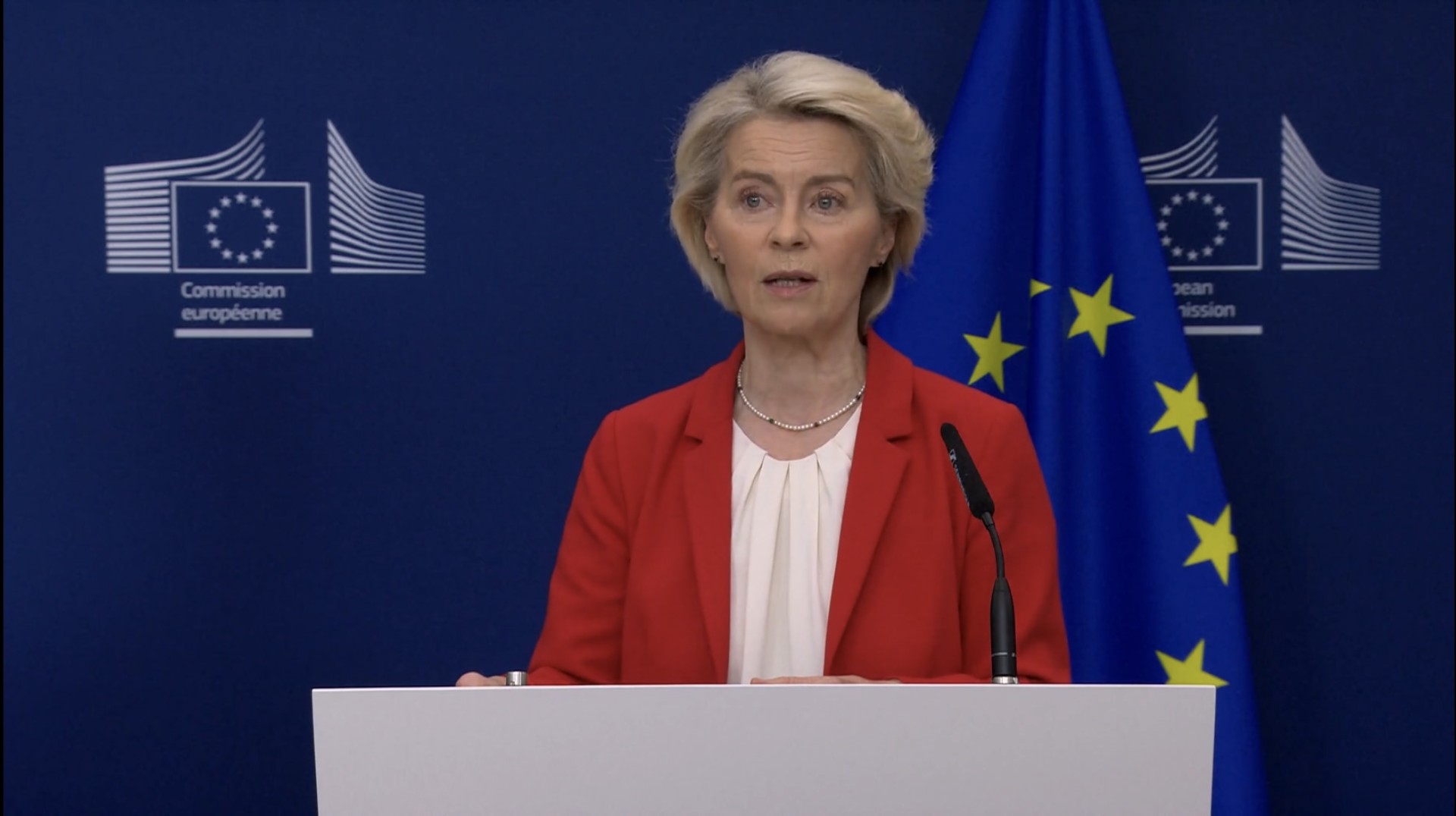LOC12:04
09:04 GMT
 European Commission President Ursula von der Leyen
European Commission President Ursula von der Leyen
BRUSSELS, Sept 30 (KUNA) -- European Commission President Ursula von der Leyen said on Tuesday that part of the proposed "reparations loan" to Ukraine, backed by frozen Russian assets, would be allocated for defence procurement within Europe, stressing the "urgent need for sustainable military support" to Kiev.
Speaking at a joint press conference with NATO Secretary General Mark Rutte, von der Leyen said the proposal "does not involve seizing the frozen assets," explaining that Ukraine would repay the loan if Russia pays reparations.
She added that "EU sanctions against Russia are working, as Russia's economic growth is expected to slow from 4.3 percent this year to 0.9 percent in 2025," noting that the new sanctions package will cover energy, financial services and trade, in particular "a ban on imports of Russian liquefied natural gas."
She stressed that "if we continue to believe that Ukraine is our first line of defence, we need to step up our military assistance," adding that the EU and Kiev agreed on the allocation of EUR 2 billion to boost local drone production, which will also benefit the EU itself.
Von der Leyen noted that "in the last 1,000 days Russia has only captured 1 percent of the occupied territory of Ukraine, despite losing more than a quarter of a million soldiers on the battlefield this year," affirming that "this moment represents an opportunity for decisive European steps that could lead to a turning point in the conflict."
She pointed out that "Russia is increasingly under economic pressure, with interest rates at 17 percent and inflation above 10 percent."
The EU chief underlined three core pillars for European defence: joint capabilities, flagship projects, and defence industrial readiness. "We need interoperable defence capabilities through closer cooperation with NATO. We must also move quickly on the Eastern Flank Watch project and build a drone wall to counter Russian incursions at our borders," she said.
"It is equally essential to develop a resilient and innovative European defence industry capable of delivering rapidly and at scale, while producing state-of-the-art military equipment," von der Leyen added, announcing that the EU will present the full version of its Readiness Roadmap 2030 in two weeks.
For his part, NATO Secretary General Mark Rutte stressed the importance of working with eastern flank nations, saying "we need to keep our skies safe and we have seen what happened in recent weeks in Poland, Estonia and Denmark."
He emphasized the timeliness of the Drone Wall initiative, noting that "in the end, we cannot spend millions of euros on missiles to take out drones that only cost a couple of thousands of dollars." (end)
arn.gta